Elder Abuse
At injured.com, we specialize in representing victims and families affected by nursing home and elder abuse through our dedicated team of attorneys. If you have concerns about the treatment of an elderly relative in a care facility, we're here to assist.
Elder Abuse: An Overview
The United States is home to over 15,000 nursing homes, housing approximately 1.4 million residents. These facilities should offer a safe and caring environment for the elderly who need 24-hour supervision or specialized care. However, there is an alarming number of cases where nursing homes fail to provide the standard of care expected.
It's essential to recognize the signs of elder abuse or neglect and take steps to ensure that those responsible are held accountable.
Types of Elder Abuse
The National Center on Elder Abuse has identified several forms of abuse that can occur in nursing homes:
• Physical abuse: Involves actions causing physical pain or injury.
• Sexual abuse: Includes any non-consensual sexual activity.
• Emotional abuse: The infliction of mental pain or distress.
• Financial abuse: Includes theft or exploitation of financial resources.
• Neglect: Failing to meet the basic needs of the elderly.
• Abandonment: Deserting an elder in need of care.
• Self-neglect: When elders neglect their own basic needs.
Recognizing the Signs
Signs of physical abuse may include unexplained injuries. For sexual abuse, look for diagnoses of sexually transmitted diseases or injuries to sensitive areas. Emotional abuse can manifest as changes in behavior or mood. Signs of neglect can be evident through bedsores, unsanitary conditions, and sudden weight loss.
If you have suspicions of elder abuse, be proactive in monitoring your loved one’s situation. Regular visits and active communication can help in early detection. Listen attentively to their concerns.
Taking Action
If you find evidence of elder abuse, first ensure the safety of the elderly person. In cases involving criminal activity such as assault or theft, it’s important to report it to the police. Additionally, nursing homes are governed by federal and state laws, and reporting instances of abuse to the state ombudsman is crucial.
Legal Action
If your loved one has been a victim of nursing home abuse, you can pursue legal action. Lawsuits can be based on negligence or intentional harm, and can be directed at individuals or the institution. Plaintiffs may seek compensation for a variety of economic and non-economic damages.
At injured.com, our attorneys are committed to fighting against nursing home abuse. We advocate for victims and their families and work to hold those accountable. Our efforts are aimed not just at securing compensation, but also in sending a message that abuse and neglect will not be tolerated. For a free consultation, contact us at (888) 845-8888.


